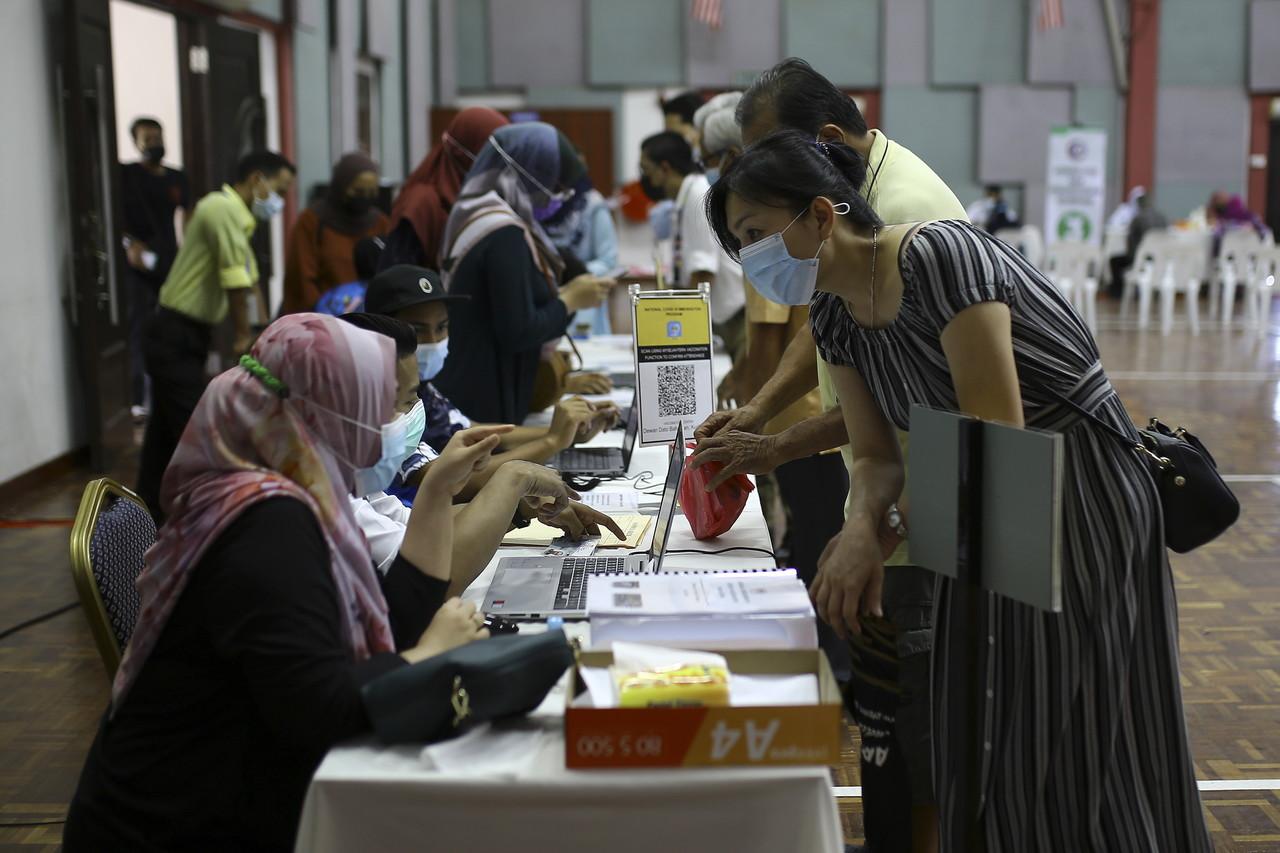Why some Malaysians are holding off on AstraZeneca jab
It's not just about concerns over the possibility of developing blood clots.
While over 260,000 people rushed to register for the AstraZeneca vaccine on Sunday under the government’s voluntary programme for the jab, many others are still hanging back – but not all are hesitating over the elephant in the room: the risk of blood clots associated with the vaccine which has left the pharmaceutical giant fighting a wave of bad publicity across the globe.
Some who spoke to MalaysiaNow about their reservations had, in fact, entirely different reasons for avoiding the opt-in programme, at least for the time being.
For Azwan, 43, his decision had nothing to do with the possible health risks involved. His beef with the programme was over its “first come, first served” basis for allocating the appointments.
People shouldn’t have to volunteer to avoid the risks of Covid-19, he told MalaysiaNow.
“I object to there being a limited lottery for the AstraZeneca vaccine, separate from the national vaccination rollout,” he said.
“It further complicates an already complicated process.”
If there must be an opt-in programme for the AstraZeneca jabs, he said, the current system is as good as any.
He also panned the move to allocate the vaccine doses only to those in Selangor and Kuala Lumpur, saying a national approach as opposed to regional “would leave a better taste in my mouth”.
The AstraZeneca vaccine currently forms the backbone of the Covax scheme, which ensures that poorer countries can access doses, with donors covering the cost.
It was hailed as a game-changer in January when it was first rolled out due to its affordability and the fact that it does not require very cold temperatures for storage like the ones from Pfizer-BioNTech and Moderna.
However, it experienced a slew of bad publicity following cases of blood clots reported in countries including the UK and Europe among patients given the jab, some of whom died.
International health and regulatory agencies including the World Health Organization and the European Medicines Agency (EMA) have repeatedly said that the benefits of being vaccinated with AstraZeneca outweigh the risks, including of getting infected with Covid-19.
The EMA also said that blood clots should be listed as a “very rare” side effect, encouraging countries to continue its use.
But the vaccine is still being met with scepticism including in Malaysia where Khairy Jamaluddin, the minister in charge of the national immunisation programme, recently revealed that 8,000 people who initially registered for vaccination through the MySejahtera app had dropped out of the programme following the government’s announcement that AstraZeneca would be included in its portfolio of jabs.
Khairy, who is also science, technology and innovation minister, said 80% of these people had re-registered for their vaccination appointments once the AstraZeneca jab was made optional.
Farahin Rahim, 28, was inclined to register for the opt-in programme but changed her mind as she was concerned about the possible side effects associated with the AstraZeneca vaccine.
Later on, however, she did some research of her own, the results of which allayed her concerns.
She now says she will register for the jab once the second batch of AstraZeneca vaccine arrives.
“I wanted to register at first but I am trying to conceive, so I decided to pass and to get professional opinions.
“I had doubts but my friend who is a doctor in the UK recommended the AstraZeneca vaccine. Now that I have sought a professional opinion, I will definitely register when the second batch arrives,” she said.
Kamal Nizam, 24, was excited to register for the AstraZeneca vaccine. After he did, though, he said people on social media engaged in “fearmongering” about the jab caused him to doubt his decision.
He recalled reading Facebook posts about people refusing the vaccine due to the possibility of blood clots despite the scientific explanations provided.
He is anxious to be safe, but he believes the vaccine’s benefits outweigh its risks.
“I have my worries but I am even more afraid that we will not reach herd immunity,” he said. “I don’t want this pandemic to get worse as it could affect my family.”
His advice is for people to be careful of what they post on social media regarding the vaccine rollout.
“I don’t mind if others are against the vaccine, but I don’t think it’s right to spread fear and influence others to not get their jabs,” he said.
“It’s not ethical.”
Subscribe to our newsletter
To be updated with all the latest news and analyses daily.
